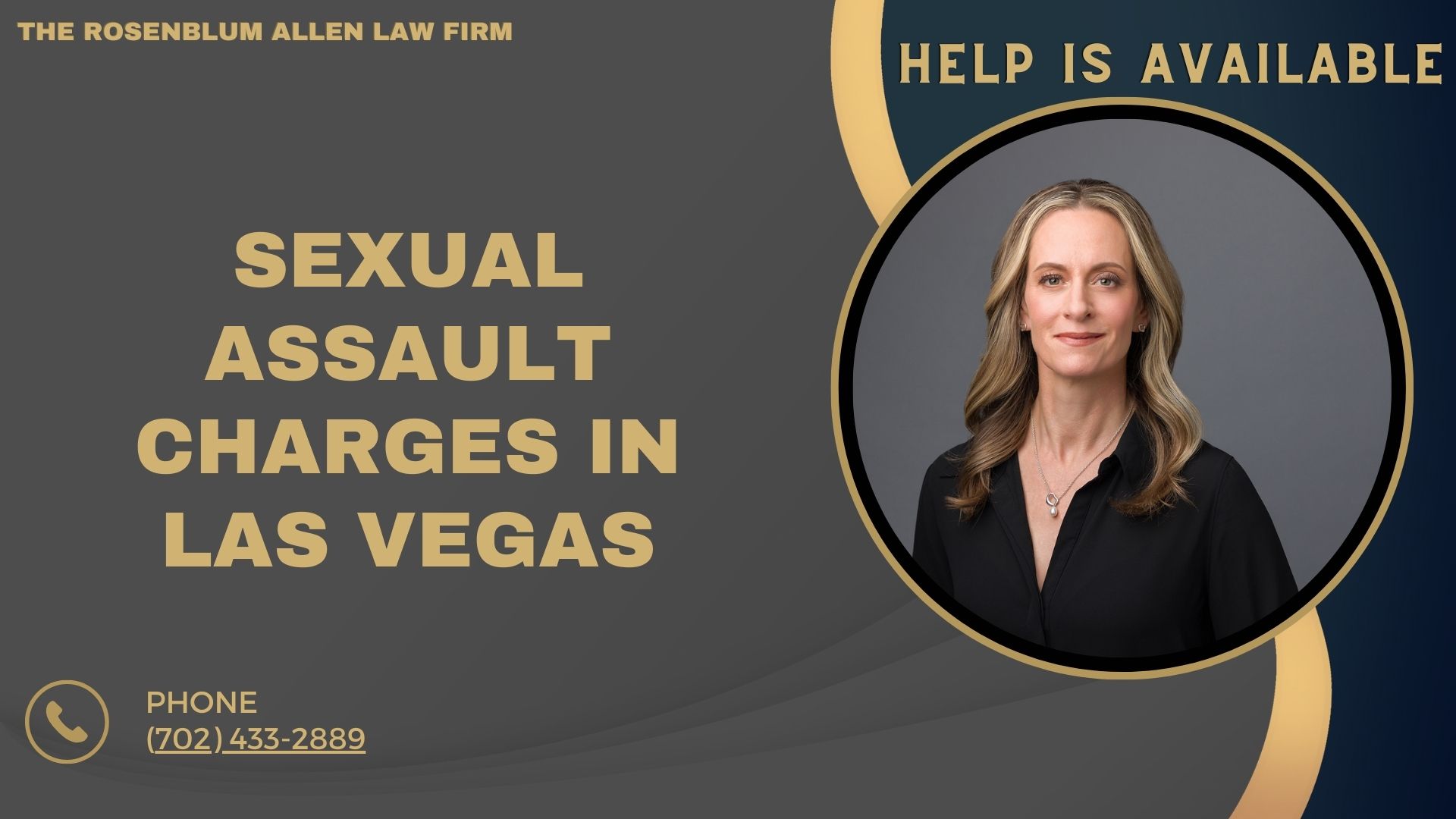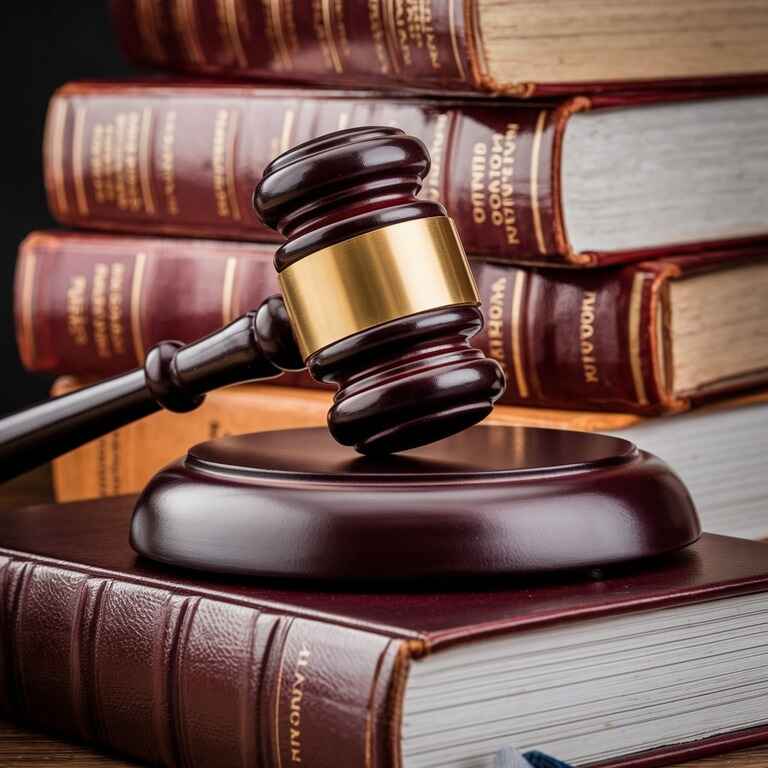Sexual assault is a serious criminal offense in Las Vegas, carrying severe legal, social, and personal consequences for all parties involved. Whether seeking information to understand the law or facing accusations, it’s vital to grasp what these charges entail clearly. This article provides an in-depth examination of sexual assault charges in Las Vegas, covering legal definitions, penalties, defenses, and the legal process.

 Legal Definition of Sexual Assault in Las Vegas
Legal Definition of Sexual Assault in Las Vegas
Nevada’s Statutory Definition of Sexual Assault
Under Nevada law, sexual assault is defined as the non-consensual sexual penetration of another person, regardless of the relationship between the parties. Consent must be:
- Freely given, without coercion or force.
- Given by an individual capable of consenting (not under the influence, unconscious, or below the age of consent).
The lack of consent can be established through:
- Use of physical force or threats.
- Exploitation of a person’s incapacity to consent.
Key Elements That Constitute the Crime
For a charge of sexual assault to be valid, prosecutors must prove the following elements:
- Sexual Penetration: Any degree of penetration, no matter how slight, qualifies under the law.
- Lack of Consent: Proven by the victim’s testimony, physical evidence, or circumstances of incapacity.
- Intent: The accused must have intended to commit the act without the victim’s consent.
Types of Sexual Assault Charges in Las Vegas
Aggravated Sexual Assault
Aggravated sexual assault involves circumstances that elevate the severity of the crime, such as:
- Use of a weapon during the assault.
- Causing physical harm to the victim.
- Targeting a particularly vulnerable victim, such as a child or older adult.
Statutory Sexual Assault
Statutory sexual assault occurs when a person engages in sexual acts with someone below Nevada’s age of consent, which is 16.
- Even if the minor appears to consent, such cases are prosecuted aggressively.
- Close-in-age exemptions may apply in limited scenarios.
Sexual Assault Involving Minors
This category includes any sexual activity involving individuals under 14, carrying particularly harsh penalties, such as:
- Mandatory minimum prison sentences.
- Lifetime sex offender registration.
Sexual Assault with a Deadly Weapon
When a deadly weapon is used during an assault, additional charges and enhanced penalties, such as extended prison terms, apply. Examples of deadly weapons include firearms, knives, or other items used to threaten or harm the victim.

Legal Penalties for Sexual Assault in Las Vegas
Prison Sentences and Fines
Standard Penalties for First Offenses
- Prison sentences range from 1 to 20 years, depending on circumstances.
- Fines can reach up to $10,000.
Enhanced Penalties for Aggravating Circumstances
- Life imprisonment without the possibility of parole may apply in extreme cases.
- Multiple counts of sexual assault often lead to consecutive sentences.
Lifetime Consequences
Sex Offender Registration
- Convicted individuals must register as sex offenders for life.
- This requirement severely restricts employment, housing, and travel.
Impacts on Employment and Housing
- Background checks often disclose convictions, limiting job opportunities.
- Many housing providers refuse to lease to registered offenders.
Penalties for False Reporting of Sexual Assault
False accusations of sexual assault are treated as criminal acts in Nevada, with penalties including:
- Fines up to $5,000.
- Imprisonment for up to 6 months.
Defenses Against Sexual Assault Charges
When accused of sexual assault, building a strong defense is essential. A defense can challenge the prosecutor’s claims and may lead to reduced charges, acquittal, or dismissal of the case. Below are common defenses used in sexual assault cases in Las Vegas.
Consent as a Defense
Consent is a key issue in sexual assault cases. A defense may argue that:
- The alleged victim willingly engaged in the activity.
- No force, threats, or coercion occurred.
Evidence that may support this defense includes:
- Text messages or emails showing mutual agreement.
- Witness testimony verifying the relationship or interaction.
False Allegations
False accusations do happen, often motivated by:
- Personal vendettas.
- Custody battles or other disputes.
- Misunderstandings or miscommunications.
Defense attorneys may uncover inconsistencies in the accuser’s story or motives for false claims.
Mistaken Identity
Sometimes, the accused may have been wrongly identified as the perpetrator. This often occurs when:
- The alleged victim cannot clearly remember the event.
- A third party falsely implicates the accused.
Evidence like DNA testing or alibis can be crucial in proving innocence.
Lack of Evidence
Prosecutors must prove guilt beyond a reasonable doubt. If the evidence is weak, the defense may argue:
- There is no physical evidence linking the accused to the crime.
- Witness testimony needs to be more reliable and consistent.
This defense can be particularly effective if the prosecution’s case relies heavily on circumstantial evidence.
Entrapment
Entrapment occurs when law enforcement induces someone to commit a crime they would not otherwise have committed. For this defense to apply:
- The accused must show they were pressured or coerced by police.
- The act would not have occurred without police involvement.

The Criminal Justice Process for Sexual Assault Cases in Las Vegas
Sexual assault cases follow a structured process. Understanding this can help individuals accused of the crime navigate the system more effectively.
Arrest and Booking
Rights of the Accused During Arrest
- You have the right to remain silent.
- You have the right to an attorney.
Police must inform you of these rights during the arrest. Answer questions with legal counsel.
Initial Booking Procedures
- Fingerprinting and photographing at the station.
- Placement in custody while awaiting a bail hearing.
Preliminary Hearings
Purpose and Procedures
The preliminary hearing determines if there is enough evidence to proceed to trial. During this stage:
- Prosecutors present evidence and call witnesses.
- Defense attorneys can cross-examine witnesses and challenge evidence.
Role of Evidence and Testimony
- Physical evidence like DNA or forensic reports may be introduced.
- Testimonies from the alleged victim and other witnesses are examined.
If the judge finds probable cause, the case moves forward.
Trial Process
Jury Selection
- Jurors are screened for impartiality.
- Both prosecution and defense can reject potential jurors for valid reasons.
Presenting Evidence and Witness Testimony
- The prosecution presents its case first, followed by the defense.
- Evidence such as photos, documents, or expert opinions is introduced.
Verdict and Sentencing
- Jurors deliberate to reach a unanimous verdict.
- If convicted, the judge imposes a sentence based on Nevada law and the case’s specifics.
Rights of the Accused in Sexual Assault Cases
Facing a sexual assault charge can be overwhelming. However, anyone accused of a crime is entitled to certain rights. Understanding and exercising these rights is critical to building a strong defense.
Right to Legal Representation
- Every accused person has the right to an attorney.
- The court will appoint a public defender if you cannot afford one.
- Having skilled legal representation can make a significant difference in the outcome of your case.
Right to a Fair Trial
- You are presumed innocent until proven guilty.
- The prosecution must prove your guilt beyond a reasonable doubt.
- A fair trial means having an impartial judge and jury, access to evidence, and the ability to challenge the prosecution’s case.
Protection Against Self-Incrimination
- You are not required to testify against yourself.
- During police interrogations, you can remain silent.
- Anything you say can be used against you in court, so it’s best to consult your attorney before speaking.
Rights During Interrogation
- Law enforcement must inform you of your Miranda rights, including the right to remain silent and the right to an attorney.
- Coerced confessions are inadmissible in court.
- You can request that your attorney be present during questioning.
Resources for Individuals Accused of Sexual Assault in Las Vegas
Navigating the legal system can feel isolating, but resources are available to help. From legal support to mental health care, these services can provide guidance and relief.
Legal Aid and Public Defenders
- Legal Aid Centers: Provide free or low-cost legal services for qualified people.
- Public Defenders: Assigned to individuals who cannot afford private representation.
- Private Attorneys: Often specialize in sexual assault defense and may have extensive experience with Nevada laws.
Bail Bond Services
- How Bail Works: After an arrest, the court may set a bail amount, allowing the accused to remain free while awaiting trial.
- Bond Companies: These services pay the bail amount for a fee, typically 10-15% of the total bail.
- Considerations: A bail bond can ensure you have time to prepare your defense outside custody.

Impact of Sexual Assault Charges
A sexual assault charge doesn’t just affect your legal standing. It can have long-lasting personal, social, and financial consequences.
Social Stigma and Reputational Harm
- Being accused can damage relationships with family, friends, and colleagues.
- Your reputation may suffer, even if the charges are dropped or dismissed.
- Social media and public records can amplify the stigma.
Financial Burdens
- Legal fees for attorneys and experts can add up quickly.
- Loss of income if you’re unable to work during legal proceedings.
- Additional costs may include bail, counseling, and fines if convicted.
Emotional and Mental Health Challenges
- Accusations can lead to feelings of shame, anxiety, and depression.
- Many individuals report stress-related health issues during the process.
- Accessing professional mental health support can help manage these impacts.
Steps to Take if Accused of Sexual Assault
Being accused of sexual assault is a life-altering experience. Taking the proper steps early on can help protect your rights and improve your chances in court.
Importance of Hiring an Experienced Defense Attorney
- Why It Matters: Sexual assault cases are complex. A skilled attorney understands the law, the court system, and how to challenge the prosecution’s case.
- Finding the Right Lawyer: Look for someone with experience in sexual assault defense and a track record of handling cases in Las Vegas.
- Immediate Action: Contact an attorney as soon as possible, even before speaking to the police.
Collecting and Preserving Evidence
Evidence can be the key to your defense. Important steps include:
- Document Everything: Write down your account of events while your memory is fresh.
- Save Communications: Keep text messages, emails, or social media exchanges that may prove your innocence.
- Gather Witnesses: Identify people who can verify your version of events or provide an alibi.
Avoiding Contact with the Accuser
- Why It’s Important: Contacting the accuser could be seen as intimidation or harassment.
- Legal Protections: Restraining or protective orders may require avoiding the accuser.
- Follow the Rules: Violating these orders can result in additional charges.
Navigating Public and Media Scrutiny
Sexual assault cases often draw public attention. Protecting your reputation can be challenging, but these steps may help:
- Avoid Discussing the Case: Don’t talk about the case with anyone except your lawyer.
- Stay Off Social Media: Anything you post could be used against you in court.
- Consider a Public Relations Strategy: Some attorneys work with PR professionals to manage public perception.

Victim Support and Advocacy in Las Vegas
Victims of sexual assault deserve access to resources and support. Understanding these options can help victims feel empowered to seek justice and heal.
Legal Avenues for Victims
Restraining Orders
- What They Do: Legally require the accused to stay away from the victim.
- How to File: Victims can request an order through the court system with the help of an advocate.
Civil Suits for Damages
- Compensation: Victims may sue the accused for emotional distress, medical expenses, and other damages.
- Separate from Criminal Cases: These suits are handled in civil court, regardless of the outcome of the criminal trial.
Long-Term Consequences of a Sexual Assault Conviction
A sexual assault conviction in Las Vegas carries consequences that extend far beyond the legal penalties. The effects can last a lifetime, impacting multiple aspects of your personal and professional life.
Impact on Employment
A conviction can make finding and maintaining employment extremely challenging.
- Background Checks: Many employers conduct criminal background checks. A sexual assault conviction will show up and often result in disqualification from the job.
- License Revocation: Professionals like teachers, doctors, and lawyers may lose their licenses.
- Limited Opportunities: Fields involving children, healthcare, or public trust are often closed to individuals with these convictions.
Housing Limitations
Finding housing after a conviction can also be challenging.
- Landlord Policies: Many landlords refuse to rent to individuals with felony convictions.
- Public Housing Restrictions: Some federal and state housing programs ban individuals with sex-related convictions.
- Community Residency Laws: Sex offender registration laws may restrict where you can live, especially near schools or parks.
Strained Personal Relationships
- Family Dynamics: A conviction can lead to estrangement from family members, custody disputes, or divorce.
- Social Isolation: Friends and community members may distance themselves due to stigma.
- Romantic Relationships: Forming new relationships can be challenging with a public criminal record.
Public Registration as a Sex Offender
Sex offender registration is one of the most stigmatizing consequences.
- Lifetime Requirement: In Nevada, most sexual assault convictions require lifetime registration.
- Public Access: Your name, photo, and address are publicly available on a sex offender registry.
- Ongoing Compliance: Registrants must notify authorities about residence, employment, or travel plan changes.
Emotional and Psychological Effects
A conviction often takes a toll on mental health.
- Shame and Guilt: Many convicted individuals struggle with feelings of worthlessness.
- Depression and Anxiety: These conditions are common due to social isolation and limited opportunities.
- Support Options: Counseling and therapy can help individuals cope with these challenges.
The Record Sealing Process
If eligible, follow these steps:
- Consult an Attorney: A lawyer can guide you through the process.
- File a Petition: Submit a formal request to the court.
- Notify Relevant Parties: Inform law enforcement and other agencies involved in the case.
- Attend a Hearing: The court may require a hearing to review your request.
- Receive an Order: If approved, the court will issue an order to seal your records.
Benefits of Sealing Records
Sealing records can offer significant relief:
- Increased Privacy: Sealed records are not visible in background checks.
- Employment Opportunities: Employers cannot access sealed cases.
- Rebuilding Reputation: Sealed records allow individuals to move forward without the stigma of a criminal past.

Recent Developments and Trends in Nevada Sexual Assault Laws
Laws related to sexual assault in Nevada have evolved. Staying informed about these changes is crucial for understanding how they might affect your case or broader societal norms.
Changes to Statutes of Limitations
Nevada has adjusted its statutes of limitations for sexual assault cases in recent years.
- Criminal Cases:
- For cases involving DNA evidence, there is no statute of limitations.
- Without DNA evidence, the time frame depends on the age of the victim and when the assault occurred.
- Civil Cases:
- Survivors of sexual assault may sue for damages within 20 years after the incident or discovery of the harm.
These changes reflect the recognition of delayed reporting, which is common in sexual assault cases.
Enhanced Penalties for Certain Offenses
Lawmakers have increased penalties for specific circumstances.
- Aggravating Factors: Using a weapon, assaulting a minor, or causing severe bodily harm can lead to harsher sentencing.
- Repeat Offenders: Repeat convictions often result in mandatory minimum sentences or life imprisonment.
Advocacy for Victim Rights
Advocacy groups continue to push for:
- Trauma-Informed Investigations: Training law enforcement to handle cases with greater sensitivity.
- Eliminating Jury Bias: Addressing misconceptions about how survivors “should” act or behave after an assault.
- Access to Legal Support: Expanding resources for victims to navigate the legal system.
Impact of #MeToo and Public Awareness
The #MeToo movement has brought significant attention to sexual assault cases.
- Increased Reporting: More survivors are coming forward to report incidents.
- Social Accountability: High-profile cases have prompted public discussions about consent and abuse of power.
- Policy Changes: Greater awareness has led to legislative reforms nationwide, including in Nevada.
Advances in Forensic Technology
Modern technology has improved how evidence is collected and analyzed.
- DNA Testing: DNA evidence has become critical in proving and disproving claims.
- Digital Forensics: In investigations, social media, text messages, and other electronic communications are increasingly used.
How to Get Help if You Are Facing Sexual Assault Charges
Facing sexual assault charges is intimidating, but you don’t have to handle it alone. Many resources are available to support you legally, emotionally, and practically.
Legal Assistance
Having a skilled attorney is essential.
- Consult a Specialist: Seek a lawyer who is experienced in sexual assault defense.
- Public Defenders: If you cannot afford private counsel, the court will appoint a public defender.
- Second Opinion: You are entitled to consult with multiple attorneys to find the right fit.
Emotional Support
The stress of legal proceedings can take a toll on your mental health.
- Therapy: Counselors can help you manage anxiety and depression.
- Support Groups: Connecting with others in similar situations can provide reassurance.
- Trusted Friends or Family: Lean on loved ones for emotional support.
Understanding Your Rights
Stay informed to protect yourself.
- Know Your Rights: Understand Nevada’s legal system and your protections under the law.
- Preserve Evidence: Work with your attorney to collect anything supporting your case.
- Stay Silent: Avoid discussing your case with anyone other than your lawyer.
Breaking It All Down
Understanding the legal landscape of sexual assault charges in Las Vegas is essential for anyone involved in these cases.
For the accused, knowing your rights, working with a skilled defense attorney, and staying informed about the law can significantly impact your case’s outcome. Accessing available resources and understanding legal options can empower victims to seek justice and start the healing process.
Whether navigating a complex legal battle or supporting someone who is, the information provided here serves as a guide to help you move forward. Let us know if you need additional resources or have specific concerns we can address.

Frequently Asked Questions
Can I Travel Out of State While Facing Sexual Assault Charges?
Travel restrictions often apply when facing sexual assault charges, especially if you are out on bail.
- You may need permission from the court or your bail bond agent to leave the state.
- Violating travel restrictions could result in bail revocation or additional charges.
- Always consult with your attorney before making travel plans.
How Long Does a Sexual Assault Case Take to Resolve?
The timeline for a sexual assault case can vary widely.
- Preliminary Hearings: These can occur within weeks of your arrest.
- Discovery and Pre-Trial Motions: This stage may take months as evidence is reviewed and motions are filed.
- Trial: If the case goes to trial, it could take several days or weeks.
- Appeals: If convicted, the appeals process can take years.
- Factors like case complexity and court availability can impact the duration.
What Happens If I Violate Sex Offender Registration Requirements?
Failing to comply with registration laws is a serious offense in Nevada.
- You could face felony charges for non-compliance.
- Penalties may include fines, extended registration periods, or imprisonment.
- Staying current with registration requirements is crucial to avoid additional legal trouble.
Can a Juvenile Be Charged with Sexual Assault?
Yes, juveniles can face sexual assault charges in Nevada.
- Cases are often handled in juvenile court, but severe offenses may be transferred to adult court.
- Juveniles convicted of sexual assault may also have to register as sex offenders.
- Consulting an attorney experienced in juvenile law is essential for protecting the child’s rights and future.
What Is Consent Under Nevada Law?
Consent in Nevada is an explicit and voluntary agreement to engage in sexual activity.
- It cannot be given if someone is underage, unconscious, intoxicated, or coerced.
- Misunderstanding or lack of communication about consent can lead to legal consequences.
- Understanding and respecting consent is crucial to avoiding potential legal issues.
Can My Charges Be Reduced Through Plea Bargaining?
Yes, plea bargaining is common in criminal cases, including sexual assault.
- Prosecutors may offer to reduce charges or recommend lighter sentences in exchange for a guilty plea.
- The specifics depend on the evidence, the severity of the allegations, and the defendant’s criminal history.
- Discuss potential plea deals with your attorney to weigh the risks and benefits.
How Are False Allegations of Sexual Assault Handled in Nevada?
False allegations are taken seriously and can result in legal consequences for the accuser.
- Filing a false police report is a criminal offense.
- Defamation lawsuits may be an option for those falsely accused.
- An attorney can help you explore your legal options if you believe you are the victim of a false accusation.
Are There Alternatives to Prison for Sexual Assault Convictions?
In some cases, alternatives to prison may be available, though this is rare for serious offenses.
- Probation or suspended sentences might be granted for lesser charges.
- Participation in counseling or rehabilitation programs could be required.
- The availability of alternatives depends on the case’s specifics and the judge’s discretion.
How Can I Protect My Privacy During a Sexual Assault Trial?
Although sexual assault trials are generally public, some measures can protect your privacy.
- Requests for closed courtrooms may be granted in sensitive cases.
- Depending on the outcome, court records can sometimes be sealed after the case concludes.
- Discuss privacy concerns with your attorney to explore available options.
What Role Does Alcohol or Drug Use Play in Sexual Assault Cases?
Alcohol and drugs can complicate sexual assault cases.
- For the Accuser: Being intoxicated may impact their ability to give consent.
- For the Accused: Substance use is not a defense but may be a factor in evaluating intent or state of mind.
- Courts consider the influence of substances carefully when reviewing evidence and testimony.

Glossary
Accuser: The individual who alleges that a crime, such as sexual assault, has occurred. In legal terms, they may also be called the “complainant” or “victim.”
Aggravating Factors: Circumstances that increase the severity or guilt of a criminal act, such as using a weapon, causing bodily harm, or targeting a minor during the offense.
Bail: A sum of money or collateral paid to the court to ensure a defendant returns for trial. Conditions may be imposed as part of bail, including travel restrictions.
Burden of Proof: The obligation to prove the facts of a case. This burden lies with the prosecution in criminal trials and requires proof “beyond a reasonable doubt.”
Consent: An explicit and voluntary agreement to participate in a specific activity. In Nevada, consent cannot be given under certain conditions, such as intoxication or coercion.
Conviction: A formal declaration by a court that an individual is guilty of a crime. This follows either a plea of guilty or a guilty verdict at trial.
Defendant: The individual accused of committing a crime in a legal proceeding.
Discovery: A pre-trial process where the prosecution and defense share evidence and information relevant to the case.
DNA Evidence: Biological material (such as hair, blood, or saliva) used in forensic analysis to identify or exclude individuals as participants in a crime.
False Allegation: A claim of wrongdoing, such as sexual assault, that is knowingly made without factual basis.
Felony: A serious crime in Nevada that is punishable by more than one year in prison. Sexual assault is typically categorized as a felony.
Forensic Technology: Scientific tools and techniques used to gather, analyze, and interpret evidence in legal cases, including DNA testing and digital forensics.
Juvenile Court: A unique court system designed to handle cases involving individuals under 18 who are accused of crimes.
Mandatory Minimum Sentences: These are statutorily required sentences that a judge must impose for certain crimes, leaving little room for discretion.
Plea Bargain: An agreement between a defendant and a prosecutor where the defendant agrees to plead guilty to a lesser charge in exchange for a reduced sentence or dismissal of other charges.
Preliminary Hearing: An initial court proceeding where a judge determines if there is enough evidence to proceed to trial.
Prosecutor: A lawyer representing the government responsible for proving the defendant’s guilt in a criminal case.
Public Defender: A court-appointed attorney provided to defendants who cannot afford to hire a private lawyer.
Registration Requirements: Legal obligations for convicted sex offenders to regularly update personal information with law enforcement.
Repeat Offender: An individual convicted of the same or similar crime more than once.
Statute of Limitations: The legal time limit within which charges must be filed for a crime. For sexual assault in Nevada, this can vary depending on the presence of DNA evidence.
Trauma-Informed Approach: A method of handling cases that takes into account the psychological impact of trauma on individuals, particularly in sensitive situations like sexual assault investigations.
Victim Advocacy: Support services provided to individuals who have experienced crimes, including counseling, legal guidance, and help navigating the justice system.
Warrant: A legal document issued by a judge that authorizes law enforcement to conduct a search, seize property, or make an arrest.

Additional Resources for You
Our lead attorney, Molly Rosenblum, Esq., has extensively dedicated her expertise to providing essential legal resources, particularly focusing on the sensitive and complex area of sex crime defense. Recognizing the intricacies and the serious implications of such charges, she has compiled a comprehensive set of resources to guide and support individuals facing these challenging situations. Here are some of the specialized resources available:
Sex Crimes Attorney: A dedicated resource offering expert legal representation and advice for those accused of sex crimes, ensuring knowledgeable and discreet handling of such sensitive cases. Learn more.
Date Rape Defense Attorney: Specialized legal support and defense strategies for individuals facing date rape allegations, focusing on a thorough and fair legal process. Learn more.
Las Vegas Sex Offender Registration Violation Attorney: Guidance and legal assistance for those facing charges related to violations of sex offender registration requirements in Las Vegas. Learn more.
Child Pornography Charges: Expert legal counsel for individuals accused of offenses related to child pornography, providing a robust defense and ensuring the protection of rights. Learn more.
Indecent Exposure: Assistance and defense for individuals facing indecent exposure charges, ensuring a respectful and diligent approach to such sensitive cases. Learn more.
Sex Trafficking Charges: Legal support for those accused of involvement in sex trafficking, offering a rigorous defense and a focus on human rights. Learn more.
Age of Consent in Las Vegas: A resource providing clarity on the legal age of consent in Las Vegas, an essential aspect of understanding sexual offense charges in the region. Learn more.
Las Vegas Solicitation Criminal Law: Guidance on the laws surrounding solicitation in Las Vegas, offering legal advice and defense for those facing related charges. Learn more.
Pandering: Expert legal assistance for individuals accused of pandering, ensuring a comprehensive and discreet approach to these serious allegations. Learn more.
Spousal Rape Nevada: Specialized legal resources and support for cases involving allegations of spousal rape in Nevada, addressing the unique challenges of such charges. Learn more.
Molly Rosenblum, Esq. is committed to providing diligent and compassionate legal services, understanding the gravity and sensitivity of sex crime allegations. These resources are meticulously designed to offer support, guidance, and expert legal representation to ensure that the rights and dignity of each individual are upheld throughout the legal process.

Offsite Resources for You
Here are some offsite resources that you might find useful:
ACLU (American Civil Liberties Union): The ACLU works in the courts, legislatures and communities to defend and preserve the individual rights and liberties guaranteed to all people in this country by the Constitution and laws of the United States.
NACDL (National Association of Criminal Defense Lawyers): NACDL is the voice of the nation’s criminal defense bar, an organization of attorneys dedicated to preserving fairness within America’s criminal justice system.
FindLaw: This resource offers a wide range of information about state and federal laws, including criminal laws.
Justia: Justia provides an array of legal information, including explanations of different areas of law and recent legal decisions.
LawHelp: LawHelp helps people of low and moderate incomes find free legal aid programs in their communities, answers to questions about their legal rights, and forms to help them with their legal problems.
Avvo: Avvo contains detailed information about lawyers from every region, which can help when choosing a lawyer. They also provide a Q&A forum where you can ask lawyers questions directly.
Legal Services Corporation (LSC): The LSC provides financial support to legal aid organizations across the US, helping to ensure that legal assistance is available to those who can’t afford it.
Innocence Project: The Innocence Project works to exonerate the wrongly convicted through DNA testing and reforms the criminal justice system to prevent future injustice.
Bureau of Justice Statistics: The BJS provides a wealth of data and statistical information about crime, criminal offenders, victims of crime, and the operation of justice systems at all levels of government.
NOLO: NOLO offers legal articles, an online legal dictionary, and a directory of lawyers categorized by state and legal issue.
Remember, while these resources can provide valuable information, it’s always best to consult with a legal professional about your specific situation.
Why You Haven't Already Hired a Defense Attorney to Help You
Watch this short video to take the next big step toward defending your rights against your felony charge.

A Special Message from Our Lead Attorney

Dear Reader,
Thank you so much for taking the time to review the legal resources that our team has thoughtfully prepared to assist you. It’s our mission to ensure that everyone has access to quality information and understands their rights when facing legal challenges.
We know that every situation is unique, and the resources provided, while informative, may not fully address your specific circumstances or concerns. That’s why we’re here to help.
Please reach out to our team for a personalized approach to your situation. Please schedule a free consultation by calling (702) 433-2889. We’ll discuss your case during this consultation and explore the best possible strategies to address your legal needs.
Remember, you don’t have to navigate this journey alone. We’re here to guide you every step of the way.
Thank you once again for your time, and we look forward to the opportunity to support you.
With gratitude,
Molly Rosenblum, Esq.



